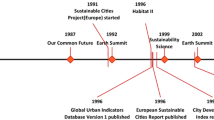Abstract
My response to Shelly Kagan’s book, The Geometry of Desert, is to raise both general and more specific issues. I criticise Kagan’s way of setting up his project. I will suggest many factors other than desert better explain Kagan’s cases. I then examine more particular aspects of the project. I investigate Kagan’s discussion of what he calls the V-shaped skyline. According to Kagan, the V-shaped skyline represents the idea that it is more important that the very vicious and the very virtuous get what they deserve than that the morally neutral get what they deserve. He finds this view attractive. I will suggest that the V-shaped skyline does not represent Kagan’s idea, and that there are independent reasons to reject the V-shaped skyline. Finally, I explore the possibility that Kagan’s account of desert implies that we have reasons not only to alter people’s levels of well-being to fit their levels of virtue, but also reasons to alter people’s levels of virtue to fit their levels of well-being. Kagan’s way of representing desert suggests that we have such reasons. However, I argue that it is implausible that we do. This casts doubt on Kagan’s way of understanding desert.
Similar content being viewed by others
Notes
(Oxford: Oxford University Press 2012), hereafter Geometry.
Geometry 48.
Geometry 179–204. Were I a friend of desert, I would be inclined to this view. If a good person’s line is mountainous, things are worse from the point of view of desert if such a person is extremely happy. This seems to imply that an extremely happy good person deserves a good whipping!
23–24.
See, for example, T M Scanlon What We Owe to Each Other (Cambridge, Mass.: Harvard University Press, 1998) ch. 6. For further discussion, see A Williams ‘Liberty, Liability, and Contractualism’ in N Holtug and K Lippert-Rasmussen Egalitarianism: New Essays on the Nature and Value of Equality (Oxford: Oxford University Press, 2007) and V Tadros The Ends of Harm: the Moral Foundations of the Criminal Law (Oxford: Oxford University Press, 2011) especially chs. 3 and 8.
For an investigation of these further duties, and an argument that they are not grounded in desert, see Tadros The Ends of Harm, ch. 12 and ‘The Appropriate Response to Wrongdoing’ Criminal Law and Philosophy, forthcoming.
See, further, V Tadros ‘Responses’ (2013) 32 Law and Philosophy 241, and T M Scanlon ‘Interpreting Blame’ in D J Coates and N A Tognazzini Blame: Its Nature and Norms (Oxford: Oxford University Press 2013).
Geometry 154.
Compare Kagan’s discussion of fairness in Geometry 351.
I first raised this problem in The Ends of Harm ch. 4.
Kagan thinks that even non-consequentialists, if they are suitably moderate, endorse this. See The Limits of Morality (Oxford: Oxford University Press 1989) 16–17.
See Geometry 627–635 for Kagan’s discussion of deontology and desert. Kagan rejects deontology. The problem we are considering here might incline friends of desert towards such a view. The idea that desert claims are reason-conferring in this way is defended in D Husak ‘Retributivism In Extremis’ (2013) 32 Law and Philosophy 3. The idea that desert claims are duty-conferring is defended in A Haque ‘Retributivism: the Right and the Good’ (2013) 32 Law and Philosophy 59. For my response to these views, and some other versions of retributivism, see V Tadros ‘Responses’.
Acknowledgments
I am grateful to Kerah Gordon-Solomon, Kasper Lippert-Rasmussen and Massimo Renzo for illuminating discussion and comments.
Author information
Authors and Affiliations
Corresponding author
Rights and permissions
About this article
Cite this article
Tadros, V. Moving Mountains: Variations on a Theme by Shelly Kagan. Criminal Law, Philosophy 11, 393–405 (2017). https://doi.org/10.1007/s11572-015-9366-1
Published:
Issue Date:
DOI: https://doi.org/10.1007/s11572-015-9366-1




